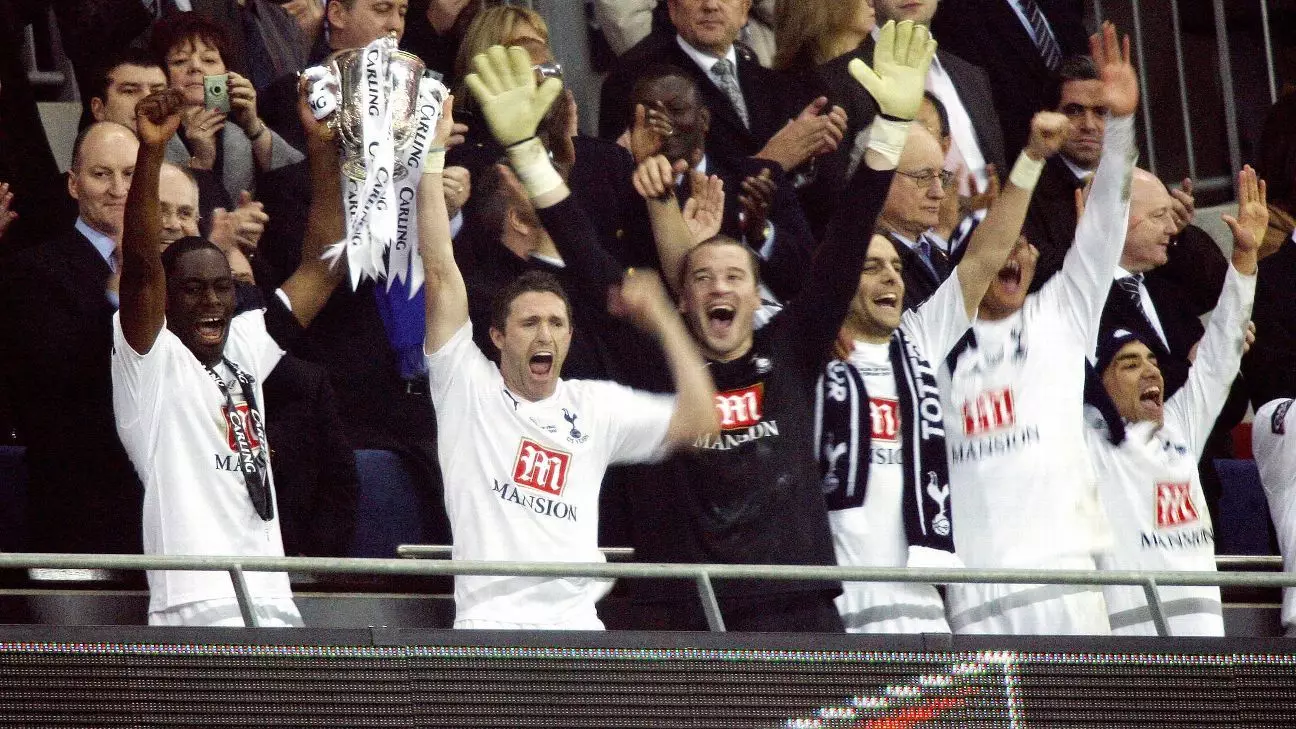Tottenham Hotspur, a club steeped in history and tradition, is currently grappling with a significant issue: an extensive trophy drought that looms over its recent narrative. Since the Carabao Cup victory in 2008, the pressure to secure new silverware has haunted the team and its managers like a specter. The expectations of the fanbase, juxtaposed with the realities of modern football, have created an environment where success often feels out of reach, yet the hopes remain unyielding.
Historically, Spurs were giants within English football, particularly during the 1960s when they achieved remarkable feats, including being the first English club to win the League and FA Cup double in the 20th century during the 1960-61 season. This golden age set a precedent that modern fans still recognize, leading to the ongoing yearning for a return to such glory. With two First Division titles, numerous FA Cups, and European success under their belt, Spurs hold a legacy that resonates in English football. However, recent decades have seen the club struggle to maintain the kind of consistent performance that breeds titles and acclaim. The accomplishments may seem a distant memory, overshadowed by an acute absence of recent triumphs.
The last major trophy Spurs raised was the Carabao Cup back in 2008. This victory marked a high point for Juande Ramos, who masterminded an unforgettable match against Chelsea at Wembley, culminating in Jonathan Woodgate’s decisive goal. While this event provided a fleeting moment of jubilation, it also underscored the club’s subsequent struggle to find any similar success in the years that followed. The fact that Spurs have seen eight different managerial reigns since that victory, all burdened by the same overarching expectation to end the trophy drought, highlights the difficult pressure associated with managing a team in pursuit of past glories.
Despite the fleeting glory of that Carabao Cup, Spurs have garnered a history of knockout competition achievements, showcasing the club’s penchant for cup successes over league consistency. Their eight FA Cup victories, tied for third-most in history alongside Liverpool and Chelsea, add to their illustrious pedigree. Yet, the challenge appears to be maintaining high performance in league tournaments, where they have yet to claim the Premier League title or have success in the UEFA Champions League.
The most notable attempt to resurrect Spurs’ fortunes came under the guidance of Mauricio Pochettino, who led the club to an impressive Champions League final in the 2018-19 season. However, the crushing defeat to Liverpool in that match further exacerbated the trophy drought, leading to continued dissatisfaction among fans. The club has seen some periods of promise, yet they have been marred by disappointing outcomes and near-misses that serve as painful reminders of their present predicament.
Now, with the appointment of Ange Postecoglou, a coach known for his attacking and dynamic style, there is hope that change is on the horizon. Having found success in previous coaching roles across Australia, Japan, and Scotland, Postecoglou might be the transformative figure needed to lift the club out of its stalemate. His ability to implement winning football philosophies will be essential if Spurs are to reclaim their position at the top of English football.
As Tottenham Hotspur navigates its current phase, questions about the club’s identity and aspirations arise. They are often compared to rival clubs that have consistently delivered silverware, igniting fierce debates about their place within the larger context of English football. The pain of coming close yet falling short—whether in league finishes, European campaigns, or domestic cup runs—can foster frustration among supporters. The legacy of past successes can feel like a double-edged sword, providing a foundation of pride yet amplifying the disappointment in the present.
The club’s rich history is a potent reminder of its place in English football, but with each passing season without silverware, that past becomes an increasingly haunting specter. Spurs need more than simply historical context; they require a pathway forward replete with both ambition and success to reinvigorate their fanbase and restore their standing as one of England’s elite football clubs.
Spurs’ ongoing quest for glory is emblematic of the fine line between heritage and expectation. Whether Postecoglou can stir the spirit of past successes and translate it into tangible achievements remains to be seen. The weight of expectation is heavy, and the journey ahead will undoubtedly be fraught with challenges. However, it is through perseverance and an unwavering desire to win that the club can hope to rejuvenate its narrative and flourish anew.

Leave a Reply